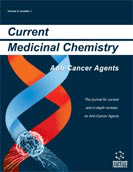Abstract
Cancers and cardiovascular disease continue to be leading causes of mortality worldwide despite unrelenting efforts to improve therapeutic strategies in both. Ironically, cardiac adverse effects of anticancer drugs result in an ever-increasing proportion of deaths in cancer survivors. Doxorubicin, one of the earliest anthracycline chemotherapeutic agents which has been in clinical use since the 1970s, is notorious for causing cumulative dose-dependent irreversible cardiac damage, traditionally termed “type I” cancer therapy-related cardiotoxicity. In the late 1990s, the approval of trastuzumab, a monoclonal antibody against the human epidermal growth factor receptor 2 (HER2), initiated an era of targeted anticancer therapy with the hope of eradicating off-target adverse effects. Unfortunately, trastuzumab treatment leads to the distinctive “type II” cancer therapy-related cardiotoxicity. As an acknowledged type I and type II cardiotoxic anticancer agents, doxorubicin and trastuzumab have been intensely investigated with regard to the complex mechanisms of their effects on the heart, yet complete understanding remains elusive. This chapter comprehensively summarizes current mechanistic insights regarding the cardiotoxicity of doxorubicin and trastuzumab, encompassing the pathophysiology of contractile dysfunction (cardiomyopathy) and electrical disturbance (arrhythmia). Gaps in knowledge and recommendations for future advances are also discussed to encourage further investigation in the field, with the ultimate goal being the effective prevention and/or treatment of cancer therapy-induced cardiac complications.






















